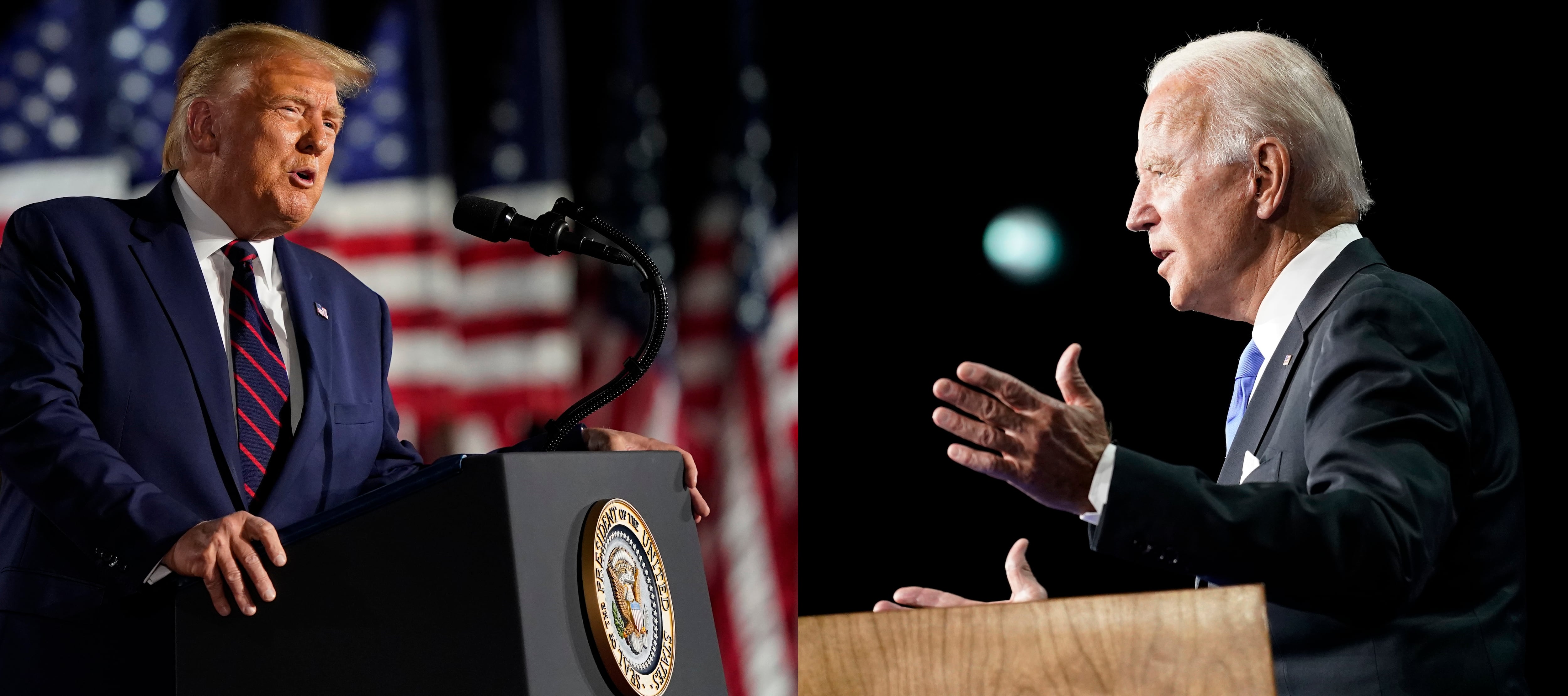The chairman of the Joint Chiefs of Staff broke with the White House in an interview with NPR set to air Monday morning, when he declined to endorse a plan to reduce troop levels in Afghanistan to 2,500 by early next year.
President Donald Trump’s national security adviser, Robert O’Brien, on Wednesday told an audience he supported a plan to draw down to 2,500 troops by early next year, but Army Gen. Mark Milley does not see that as a done deal.
“I think that, you know, Robert O’Brien or anyone else can speculate as they see fit," Milley told NPR in an interview aired Monday. “I’m not going to engage in speculation. I’m going to engage in the rigorous analysis of the situation based on the conditions and the plans that I am aware of and my conversations with the president.”
Milley’s comments came after Trump, on Thursday, one-upped O’Brien’s projection in a tweet announcing that the remaining 4,000 troops in Afghanistan “should” be home by Christmas.
“And then when we get to the point where we have further discussions and further decisions, those will be appropriately made public. But right now, it’s just not appropriate for me to do that,” Milley added. "If others want to do it, that’s up to them. But right now, it’s not my place to do that.”
Milley, who has rarely given one-on-one interviews during his 40-year career, appeared on NPR at a time when he has been largely absent from the media spotlight, last briefing at the Pentagon in May.
“The key here is that we’re trying to end the war responsibly, deliberately, and to do it on terms that guarantee the safety of the U.S. vital national security interests used an important phrase, general conditions based," he said.
Since Monday, following the news that Coast Guard Vice Commandant Adm. Charles Ray, who attended an Oct. 2 meeting in Milley’s office, had come down with COVID-19, Milley and other members of the Joint Staff have been quarantined at home.
“I just want to kind of review the bidding here and assure the American people that the Joint Chiefs of Staff are fully functional, even though we’re functional from home,” he said.
Marine Corps Assistant Commandant Gen. Gary Thomas has also tested positive, though Milley added that no one else who attended the meeting has, after multiple tests.
“We all have various, you know, SCIFs ―special compartmented information facilities ― built into our houses, whether you’re here or down at the Naval Annex or downtown,” he said, “and we all have all the same communication systems we have in the Pentagon.”
The Pentagon’s response to Ray’s diagnosis was in sharp contrast to the White House, which has dealt with more than a dozen cases ― including those of the president and first lady ― after a late September weekend of back-to-back events with no enforced physical distancing or mask requirement.
“We have a force of, I guess, 2.3 million troops out there and we were possibly exposed to someone who we know was positive, so we went right to the book, went right to the doctors and pulled out the guidelines,” Milley said of the self-isolation, testing and contract-tracing protocols.
Milley added that himself and the Joint Chiefs are considered critical infrastructure personnel, and so were not required to isolate at home.
“But I thought that was prudent, given our duties and responsibilities and given our communication capabilities at home," he said. "So, I just want to make sure that the senior military leaders of the U.S. military here are safe and able to operate. And I think it sets a good example for the forces.”
Tumultuous times
Milley’s receding from the spotlight came just after his June 2 appearance with Trump, Defense Secretary Mark Esper and various other top officials in the administration in Lafayette Square, after U.S Park Police infamously cleared the area of protestors, using tear gas and rubber bullets.
In a pre-recorded keynote graduation address at the National Defense University, Milley apologized for appearing in the political photo opportunity.
RELATED

“I think that we have a very, very long tradition of an apolitical military that’s embedded really from the days of George Washington ... And we want to ensure that there is always civilian leadership, civilian control of the military, and we will obey the lawful orders of civilian control of the military, long standing tradition, and we adhere to the rule of law, ” he told NPR.
Questions have arisen, however, about whether the military would play a role in a contested election, perhaps removing Trump from the White House should he lose and refuse a peaceful transfer of power.
Milley shot those down, as well, explaining that Congress and the Supreme Court have that oversight.
“This isn’t the first time that someone has suggested that there might be a contested election," he said. "And if there is, it’ll be handled appropriately by the courts and by the U.S. Congress. There’s no role for the U.S. military in determining the outcome of a U.S. election. Zero ―there is no role there.”
Meghann Myers is the Pentagon bureau chief at Military Times. She covers operations, policy, personnel, leadership and other issues affecting service members.




